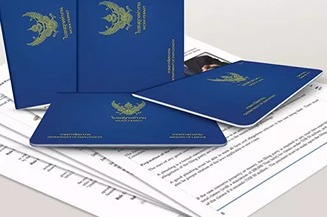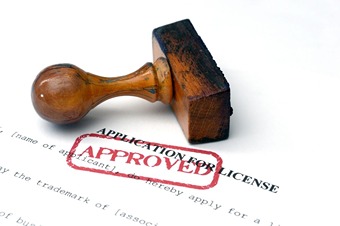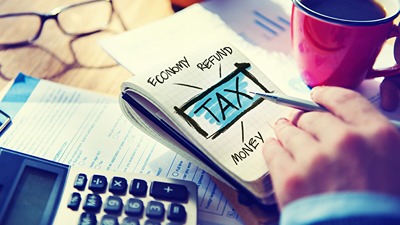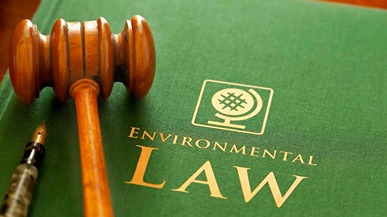Welcome to the blog on “Starting a Business in Bangkok: Tips for Non-Thai Founders”! Here, you will find valuable information and insights on the legal requirements and steps involved in setting up a business in Bangkok, Thailand. From choosing a business structure and registering the company with the Thai government, to obtaining business licenses and permits, hiring employees, and complying with tax and environmental regulations, this blog covers all the important aspects of starting a business in Bangkok.
Whether you are a first-time entrepreneur or an experienced business owner looking to expand into the Thai market, this blog will provide you with the information you need to make informed decisions and navigate the legal process smoothly. We aim to make this blog a comprehensive guide for anyone interested in starting a business in Bangkok and hope that you find it useful.
Table of Contents
Introduction to Starting a Business in Bangkok

Starting a business in Bangkok as a foreigner can be a thrilling opportunity for entrepreneurs looking to expand their operations or enter a new market. However, it’s important to understand the challenges and regulations involved before launching a business in Bangkok. This blog provides a comprehensive introduction to starting a business in Bangkok as a foreigner, including the necessary steps, documents, and legal requirements. From obtaining a business visa and finding the right business location, to registering your company and securing financing, we will cover everything you need to know to get started on your entrepreneurial journey in Bangkok. Whether you’re a seasoned business owner or a first-time entrepreneur, this guide will help you navigate the process and launch a successful venture in Bangkok.
In this article, we will cover the various legal requirements for starting a business in Bangkok, including choosing a business structure, registering the company with the government, obtaining necessary licenses and permits, hiring employees, paying taxes, protecting intellectual property, and complying with environmental regulations. Understanding these requirements is crucial to ensuring a smooth and successful start for your business in Bangkok.
In addition to the legal requirements, it is also important to conduct market research and create a solid business plan to guide the direction of your business. This will help you understand the market demand, competition, and potential challenges you may face. Bangkok has a diverse range of industries and sectors, from tourism to technology, making it a dynamic and exciting place to start a business.
Another important factor to consider when starting a business in Bangkok is the local culture and business practices. Thailand has a unique cultural heritage and business traditions that can differ significantly from those in other countries. It is important to be respectful of these differences and adapt your business practices accordingly. This will help you build strong relationships with local partners, suppliers, and customers, and increase the chances of success for your business.
In conclusion, starting a business in Bangkok can be a great opportunity, but it is important to understand and comply with the legal requirements. By following the steps outlined in this article and conducting thorough market research, you will be well on your way to starting a successful business in one of Southeast Asia’s most vibrant cities.
Choosing a Business Structure

Choosing the right business structure is a critical decision for any entrepreneur, but it’s especially important for foreigners starting a business in a new country. The business structure you choose will have a significant impact on the way your business operates, its tax obligations, and your personal liability. When starting a business in Bangkok as a foreigner, it’s important to consider the following factors when choosing a business structure:
Legal requirements: Different business structures have different legal requirements in Thailand. It’s important to understand the regulations that apply to each structure and choose one that meets your business needs and complies with Thai law.
Tax implications: The tax implications of different business structures can vary greatly. Some structures may offer tax benefits, while others may have higher tax obligations. It’s important to consult with a tax professional to understand the tax implications of each structure and choose one that best suits your business needs.
Personal liability: The level of personal liability you assume as the owner of a business will vary depending on the structure you choose. Some structures, such as sole proprietorships and partnerships, offer little protection from personal liability, while others, such as limited liability companies (LLCs), offer more protection.
Ease of formation: The ease of formation is another important factor to consider when choosing a business structure. Some structures may be easier to set up than others and may have fewer requirements in terms of legal documentation and paperwork.
The most common business structures for foreigners starting a business in Bangkok are representative offices, branches, and limited companies. Each of these structures has its own advantages and disadvantages, so it’s important to choose one that best meets your business needs and objectives. Before making a decision, it’s recommended to consult with a lawyer or business advisor who is familiar with the legal and regulatory requirements for starting a business in Thailand.
Registering the Company with the Thai Government

Registering your company with the Thai government is a crucial step in starting a business in Bangkok as a foreigner. In order to register your company, you’ll need to complete a number of procedures and provide various documents to the relevant government agencies. The following is a general outline of the steps involved in registering a company in Thailand:
Choose a business structure: Decide on the type of business structure you want to register, taking into consideration the legal requirements, tax implications, and personal liability associated with each structure.
Choose a company name: Choose a unique company name that complies with Thai law and regulations. You can check the availability of your chosen name by conducting a name search through the Department of Business Development.
Obtain a work permit: If you plan to work in Thailand, you’ll need to obtain a work permit before registering your company. You can apply for a work permit through the Thai embassy in your home country.
Register the company: Once you have a work permit, you can register your company with the Department of Business Development. You’ll need to provide various documents, including a copy of your passport, the company’s registration form, and proof of the company’s registered capital.
Obtain a tax ID number: After registering your company, you’ll need to obtain a tax ID number from the Revenue Department. This will allow you to file taxes and receive invoices for your business.
Register for social security: If you plan to employ workers in Thailand, you’ll need to register for social security with the Social Security Office.
Register for value-added tax (VAT): If your company’s revenue exceeds 1.8 million baht per year, you’ll need to register for VAT with the Revenue Department.
The process of registering a company in Thailand can be complex and time-consuming, so it’s recommended to seek the assistance of a professional, such as a lawyer or business advisor. This will ensure that your company is registered correctly and in compliance with Thai law and regulations.
Obtaining Business Licenses and Permits

Obtaining the necessary business licenses and permits is an important step in starting a business in Bangkok as a foreigner. The licenses and permits you’ll need will depend on the nature of your business and the specific regulations that apply to your industry. The following is a general overview of the licenses and permits you may need to obtain:
Business license: A business license is a legal document that allows you to operate a business in Thailand. You’ll need to apply for a business license through the Department of Business Development after registering your company.
Work permit: If you plan to work in Thailand, you’ll need to obtain a work permit. You can apply for a work permit through the Thai embassy in your home country.
Specific industry licenses: Depending on the nature of your business, you may need to obtain specific industry licenses. For example, businesses involved in manufacturing, import and export, or food and beverage service may require additional licenses.
Building and construction permits: If you plan to rent or build commercial premises, you’ll need to obtain building and construction permits. These permits are obtained through the local municipality.
Environmental permits: If your business has an impact on the environment, you may need to obtain environmental permits. This can include permits for air and water pollution control, waste management, and hazardous waste management.
Intellectual property rights: If you plan to use patents, trademarks, or copyrights in Thailand, you’ll need to register them with the relevant government agency.
Import and export licenses: If your business involves import or export, you’ll need to obtain import and export licenses. These licenses are obtained through the Ministry of Commerce.
It’s important to note that the process of obtaining business licenses and permits in Thailand can be complex and time-consuming. It’s recommended to seek the assistance of a professional, such as a lawyer or business advisor, to ensure that you obtain all the necessary licenses and permits in a timely and efficient manner.
Hiring Employees in Bangkok

Hiring employees is an important step in growing and scaling a business in Bangkok. The process of hiring employees in Thailand involves several steps, including obtaining the necessary permits and understanding Thai employment law.
To hire employees in Thailand, you will need to obtain a work permit for each foreign national you plan to employ. The work permit process typically involves submitting an application to the Thai Department of Employment, along with the necessary documentation, including a passport and a criminal background check.
In addition to obtaining a work permit, it is also important to understand and comply with Thai employment law. This includes regulations related to minimum wage, working hours, overtime, and social security. It’s important to provide a safe and fair working environment for your employees and to follow all relevant employment laws to avoid legal and financial consequences.
When hiring employees in Bangkok, it’s also important to consider the cultural differences and to be mindful of the local business norms. This includes understanding the local work ethics, communication styles, and cultural expectations.
In conclusion, hiring employees is an important step in growing and scaling a business in Bangkok. It involves obtaining a work permit, understanding Thai employment law, and being mindful of cultural differences. Following these steps carefully will help ensure compliance with Thai law and create a positive work environment for your employees.
Taxation for Businesses in Bangkok

Taxation is an important consideration for businesses operating in Bangkok as a foreigner. Thailand has a comprehensive tax system that covers various forms of income and business activities. The following is a general overview of the main taxes that businesses may be subject to in Thailand:
Corporate Income Tax: This is a tax on the profits earned by a company. The current corporate income tax rate in Thailand is 20%.
Value-Added Tax (VAT): VAT is a tax on the value added to goods and services during production and distribution. The standard VAT rate in Thailand is 7%.
Withholding Tax: This is a tax on payments made to non-resident companies, such as dividends, interests, and royalties. The current withholding tax rate in Thailand ranges from 10-15%.
Personal Income Tax: This is a tax on the income earned by individuals, including business owners and employees. The personal income tax rate in Thailand ranges from 5-35%.
Social Security Contributions: Employers are required to make social security contributions on behalf of their employees. These contributions go towards funding Thailand’s social security system, which provides benefits such as healthcare and pensions.
Specific Business Taxes: Depending on the nature of your business, you may be subject to specific business taxes, such as taxes on property rental, hotel accommodation, and advertising.
It’s important to note that tax laws and regulations in Thailand can be complex and subject to change. It’s recommended to seek the assistance of a professional, such as an accountant or tax advisor, to ensure that your business complies with Thai tax laws and regulations. Additionally, failing to comply with tax laws can result in penalties and fines, so it’s important to take a proactive approach to tax planning and compliance.
Protecting Intellectual Property

Protecting your intellectual property (IP) is an important aspect of doing business in Bangkok as a foreigner. Intellectual property refers to the legal rights that protect your original creations, such as patents, trademarks, and copyrights. The following is a general overview of how to protect your intellectual property in Thailand:
Register your trademarks: Registering your trademarks with the Department of Intellectual Property is the first step in protecting your brand in Thailand. This will give you exclusive rights to use your trademark and prevent others from using similar trademarks.
Apply for patents: If you have an invention or product that is novel and inventive, you can apply for a patent to protect your IP. Patent applications are filed with the Department of Intellectual Property.
Register copyrights: If you have created original works, such as music, literature, or software, you can register your copyrights to protect your IP. Copyright registrations are filed with the Department of Intellectual Property.
Sign Non-Disclosure Agreements (NDAs): If you’re working with others, such as employees or contractors, you may want to consider signing NDAs to protect confidential information. NDAs are legal contracts that prohibit others from disclosing your confidential information.
Seek legal advice: If you’re facing IP infringement or disputes, it’s important to seek legal advice from a qualified IP lawyer. They can help you understand your rights and assist you in protecting your IP.
It’s important to note that IP laws and regulations can be complex and subject to change. By taking the necessary steps to protect your IP, you can ensure that your original creations are protected and prevent others from unfairly profiting from your work.
Compliance with Environmental Regulations

Compliance with environmental regulations is a crucial aspect of doing business in Bangkok as a foreigner. Thailand has a comprehensive environmental protection framework that covers various aspects of environmental protection, such as air and water quality, waste management, and biodiversity conservation. The following is a general overview of the main environmental regulations that businesses operating in Bangkok must comply with:
Air Quality Regulations: These regulations set standards for air pollutants, such as particulate matter and greenhouse gases. Businesses that emit air pollutants must comply with these regulations to prevent harm to human health and the environment.
Water Quality Regulations: These regulations set standards for the quality of water used in industrial and commercial activities. Businesses must ensure that their activities do not harm the quality of water and comply with discharge limits set by the government.
Waste Management Regulations: These regulations set standards for the management of waste generated by businesses. Businesses must properly dispose of their waste to prevent harm to the environment and comply with waste management regulations set by the government.
Biodiversity Conservation Regulations: These regulations protect the diversity of species and ecosystems in Thailand. Businesses must comply with these regulations to prevent harm to biodiversity and ensure sustainable use of natural resources.
Environmental Impact Assessment (EIA): Businesses that undertake activities that are likely to have a significant impact on the environment must undergo an EIA. The EIA process evaluates the potential environmental impacts of the proposed activity and recommends measures to mitigate those impacts.
It’s important to note that environmental regulations in Thailand can be complex and subject to change. It’s recommended to seek the assistance of a professional, such as an environmental consultant, to ensure that your business complies with Thai environmental regulations. Additionally, failing to comply with environmental regulations can result in penalties and fines, so it’s important to take a proactive approach to environmental compliance.
Conclusion: Navigating the Legal Process for Starting a Business in Bangkok
Starting a business in Bangkok as a foreigner can be a complex process, but by understanding the key legal requirements, you can navigate the process with confidence. The key steps to starting a business in Bangkok as a foreigner include:
Choosing the right business structure that suits your needs and meets legal requirements.
Registering your company with the Thai government and obtaining necessary licenses and permits.
Understanding the tax requirements for businesses operating in Bangkok, including registering for tax and keeping accurate records.
Protecting your intellectual property through trademark registration, patent applications, and copyright registrations.
Complying with environmental regulations to ensure that your business operations do not harm the environment.
By following these steps, you can establish a successful business in Bangkok and enjoy the benefits that this thriving city has to offer. However, it’s important to note that the legal requirements for starting a business in Bangkok can be complex and subject to change. Seeking the assistance of a professional, such as a lawyer or business consultant, can help ensure that your business is established and operated in compliance with Thai law.
Moving to Bangkok as an expat? Make the transition smoother with this ultimate guide. Find all the information you need to know about relocating to Bangkok, from visas to healthcare, and everything in between. Read now to make the most of your expat experience in this vibrant city “Bangkok expat guide – Comprehensive information about Relocating to Bangkok“. Thinking of relocating to Bangkok as an expat? Don’t miss this essential guide to the Bangkok property market. Learn how to find your dream home and navigate the market with confidence. Get tips and advice from experienced expats in the city. Read now! “The Expat’s Guide to the Bangkok Property Market: How to Find Your Dream Home“.
Are you concerned about crime in Bangkok? Stay informed with this in-depth guide to the current state of crime in the city. Learn about the most common crimes, how to protect yourself, and what areas to avoid. Read now for a safer expat experience in Bangkok! “Understanding the Current State of Crime in Bangkok“. Looking for the perfect neighborhood in Bangkok? This comprehensive guide has got you covered. Discover the best places to live in the city, based on your lifestyle, budget, and more. Get insider tips from expats who call Bangkok home. Read now! “The Best places to live in Bangkok – Bangkok neighborhood guide for expats“.
Q. Is it possible for a foreign individual to fully own a business in Bangkok?
Foreigners are not allowed to own 100% of a business in Bangkok, there is a 49% foreign ownership limit in most industries. Foreigners can use Thai nominee shareholders to gain control over a Thai company.
Q. Is it possible for a non-Thai citizen to establish a business in Bangkok?
Yes, foreigners are able to start a business in Bangkok but there may be certain restrictions and requirements that need to be met.
Q. What is the minimum capital required to start a business in Bangkok?
Starting a business in Bangkok typically requires an initial investment, the amount of which can vary depending on the type of business and its location. It’s best to research and budget accordingly.
Q. Can foreigners be taxed in Thailand?
Yes, foreigners are required to pay taxes on their income in Thailand if they are considered a tax resident. The tax rate depends on their income level.

